“Daisy” at Main Street Theatre explores the power of manipulation and the creation of the infamous TV spot that forever changed elections in America. The commercial aired only once, but it shook the American psyche as the first major negative political TV ad. It didn’t even mention Lyndon B. Johnson’s Republican opponent by name, and it didn’t need to.
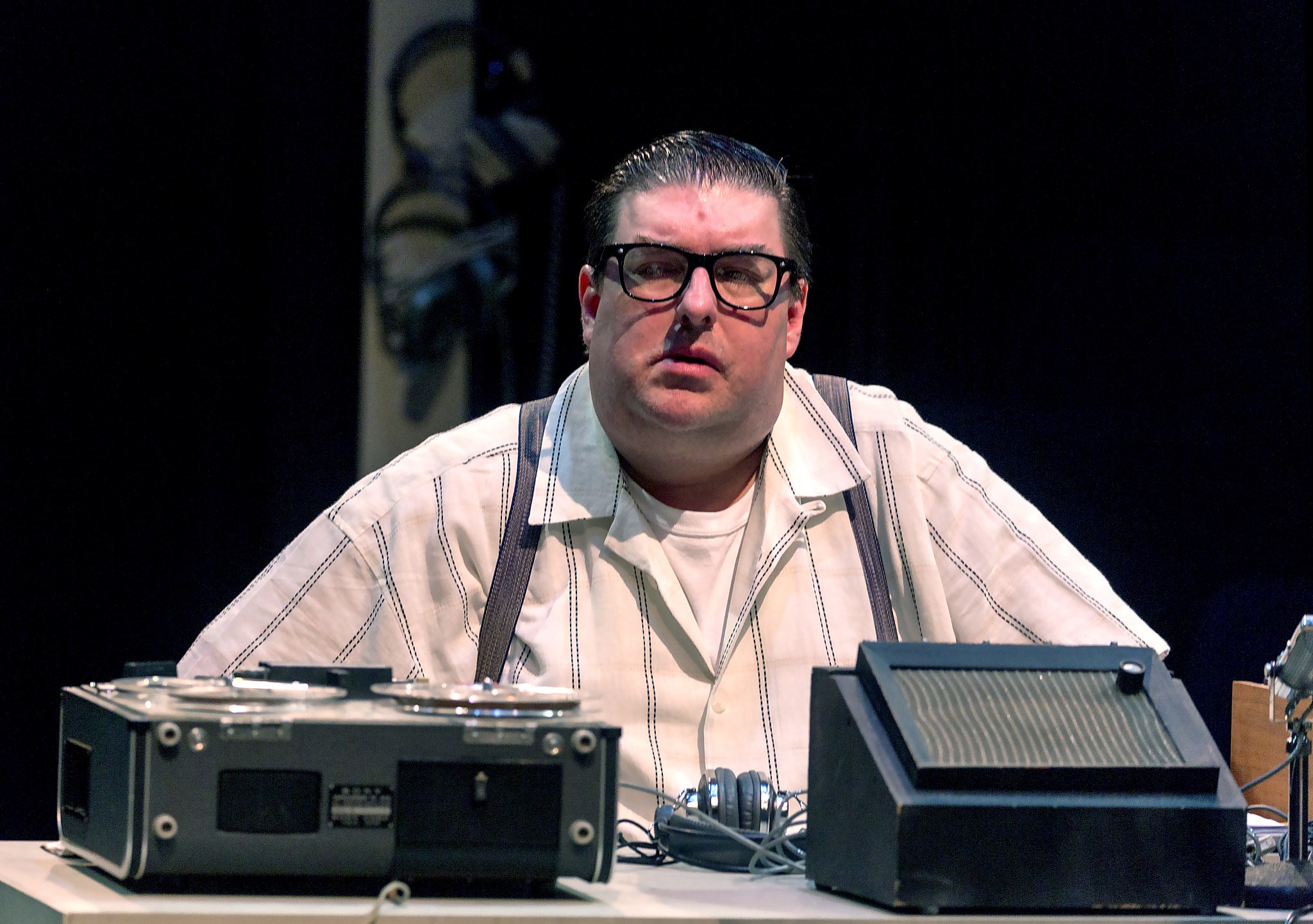 “The audience completes the message,” is a line of Tony Shwartz, who was the mastermind behind Daisy and is a character in the play.
“The audience completes the message,” is a line of Tony Shwartz, who was the mastermind behind Daisy and is a character in the play.
TV viewers in 1964 defined the message of the Daisy ad, and the audience of Main Street Theatre create the meaning of this play. The Daisy ad played on analog television sets in American living rooms over fifty years ago, but today I can still relate to the fear of having a Republican presidential nominee who makes reckless comments and seems trigger happy with the nuclear arsenal. Senator Barry Goldwater was the unlikely, unconventional Republican nominee in 1964. He openly supported extremism, had supporters in the KKK and casually talked about using nuclear weapons. The politics of the show are all too familiar in 2018.
For a story set in the 1960s, it’s refreshing to see a strong female lead. Louise Brown is an ambitious woman climbing the ranks of a prestigious advertising agency in Manhattan. Louise struggles to reconcile her moral principles of decency with her ambition in a world dominated by masculinity and cut-throat competition. Actress Rachel Logue brings the depth of internal tension and simmering external conflict to her role as Louise. Looking ahead to my own post-college career, her struggle forced me to think how I can balance morals and ambition.
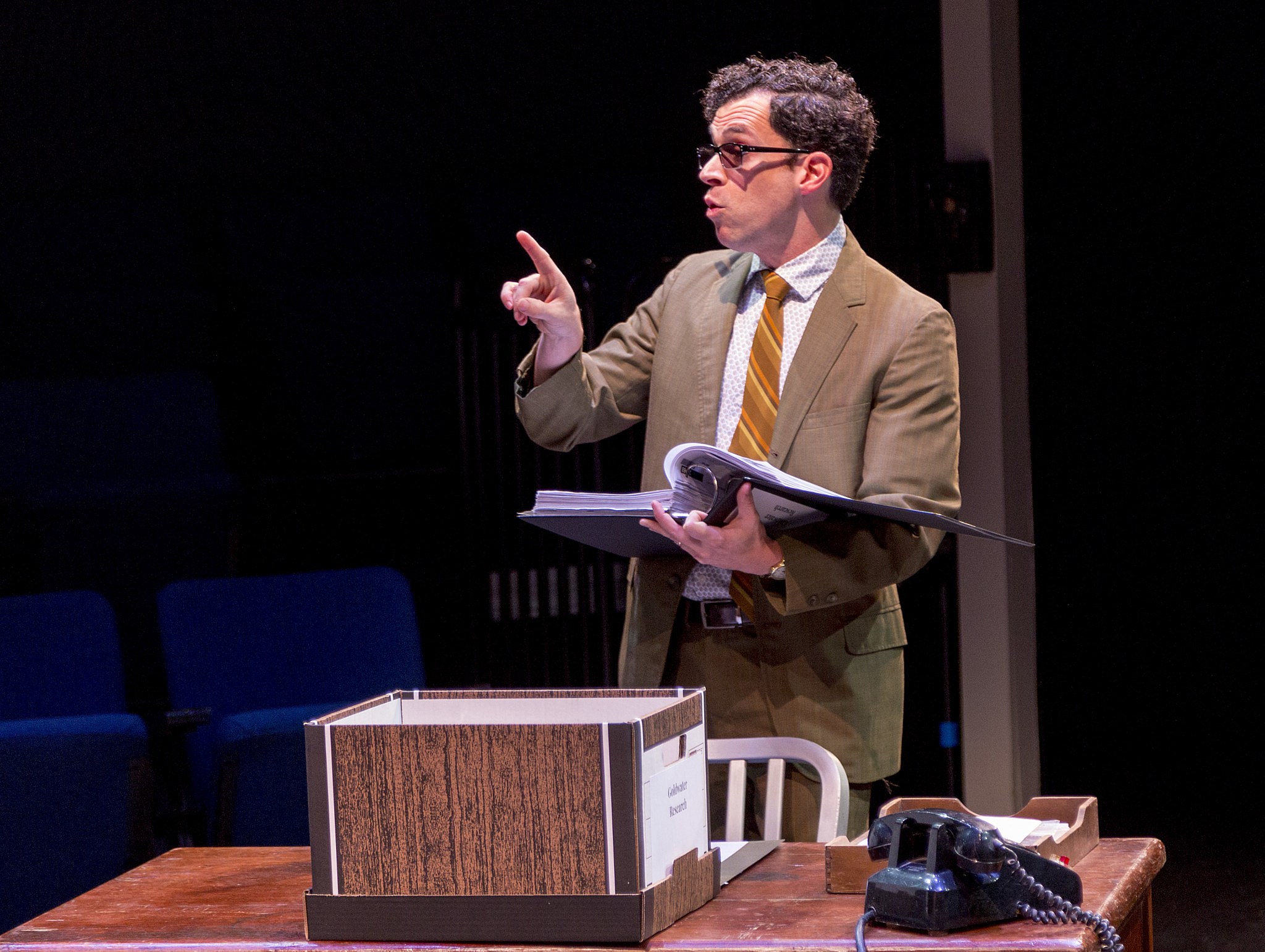
Playwright Sean Devine could have easily made Louise’s character a man—originally he did. In a talk opening night about the play, Devine said that at first the play was six white men, which was the reality of who was involved with the creation of the ad. An advocate for diversity in theatre convinced Devine to make changes. Although there wasn’t a woman who worked directly on the Daisy ad, the advertising agency that created it promoted women when it wasn’t the norm.
Devine said that making one of the characters a woman and another African American “opened up whole other layers of what was going on at the time.” Struggles of gender equality in the workplace are explored through Louise’s character, and the still controversial civil rights movement is seen through the eyes of the character Clifford Lewis (Brandon C. Balque).
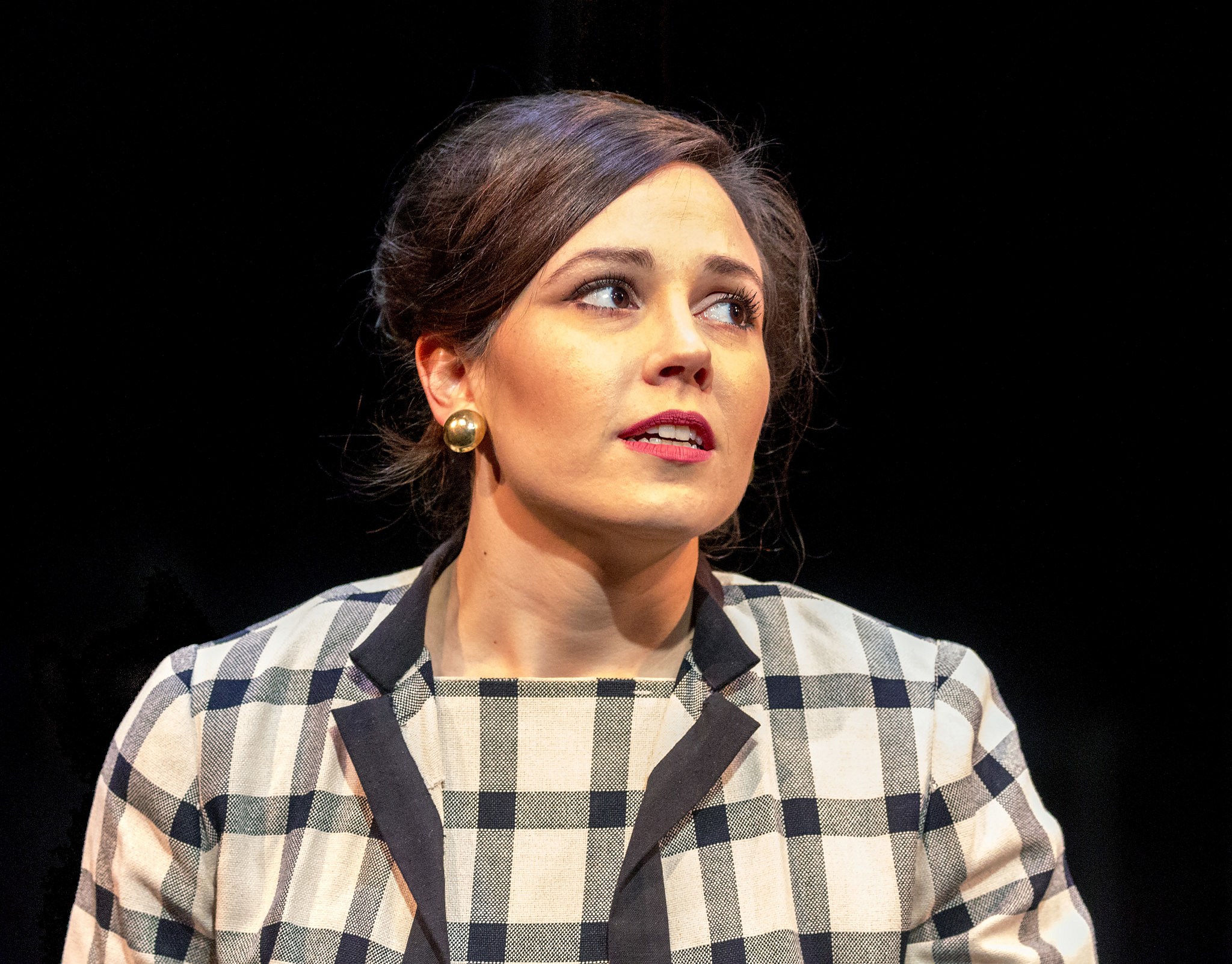
Overall, “Daisy” is a skillfully written and executed production. I think it’s a must-see for communication students, history buffs and political junkies in particular. Although advertising guru Jack J. Valenti isn’t a character in the show, this is his world. The namesake of the UH School of Communication was an advisor to President Johnson who the Daisy ad helped re-elect in a landslide.
“Daisy” is playing at Main Street Theatre in Rice Village through April 29. Student tickets are $10 in advance or at the door. University faculty and staff can receive 25 percent off when they use the promo code “TEACHER” and purchase tickets in advance.
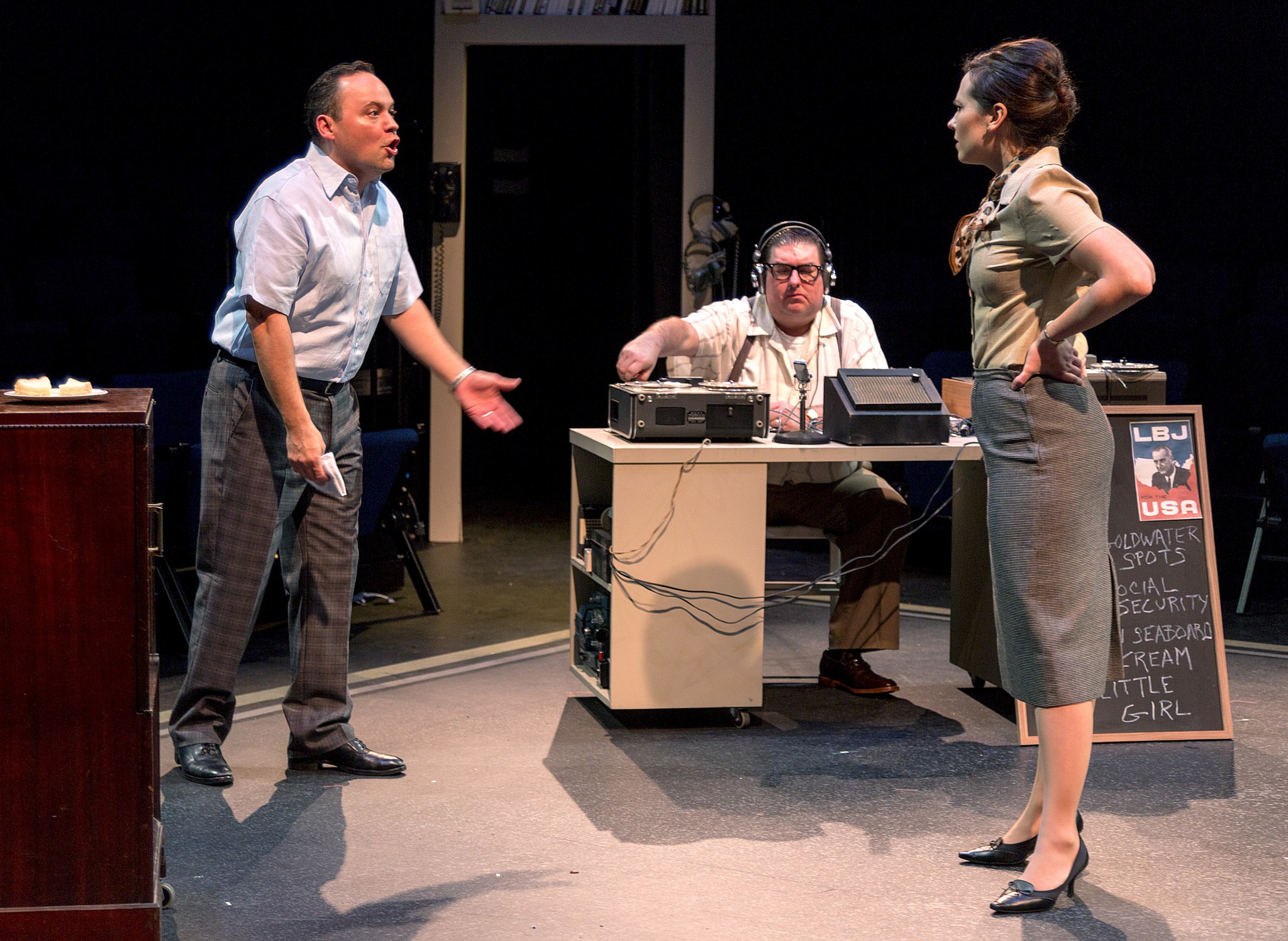

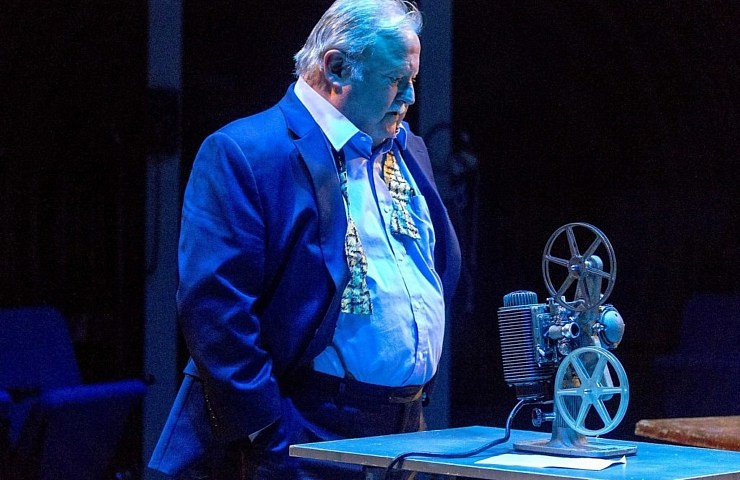

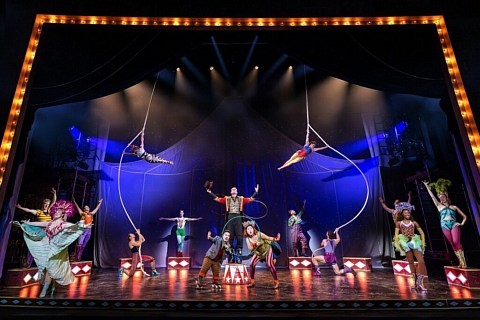
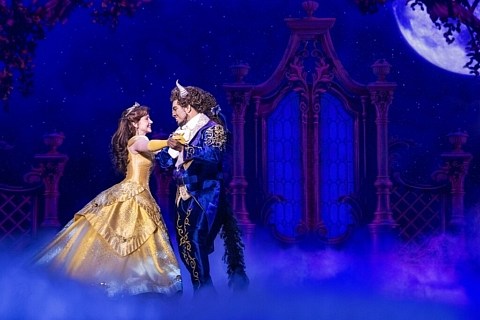
Recent Comments